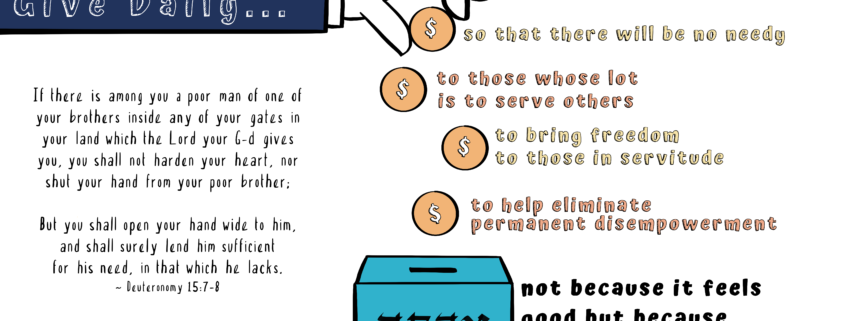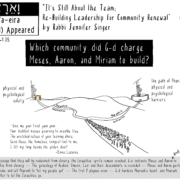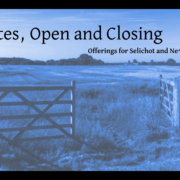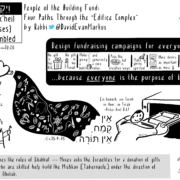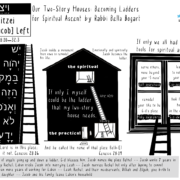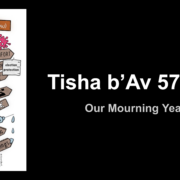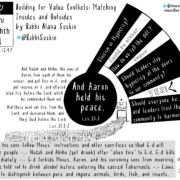Giving is Who We Are
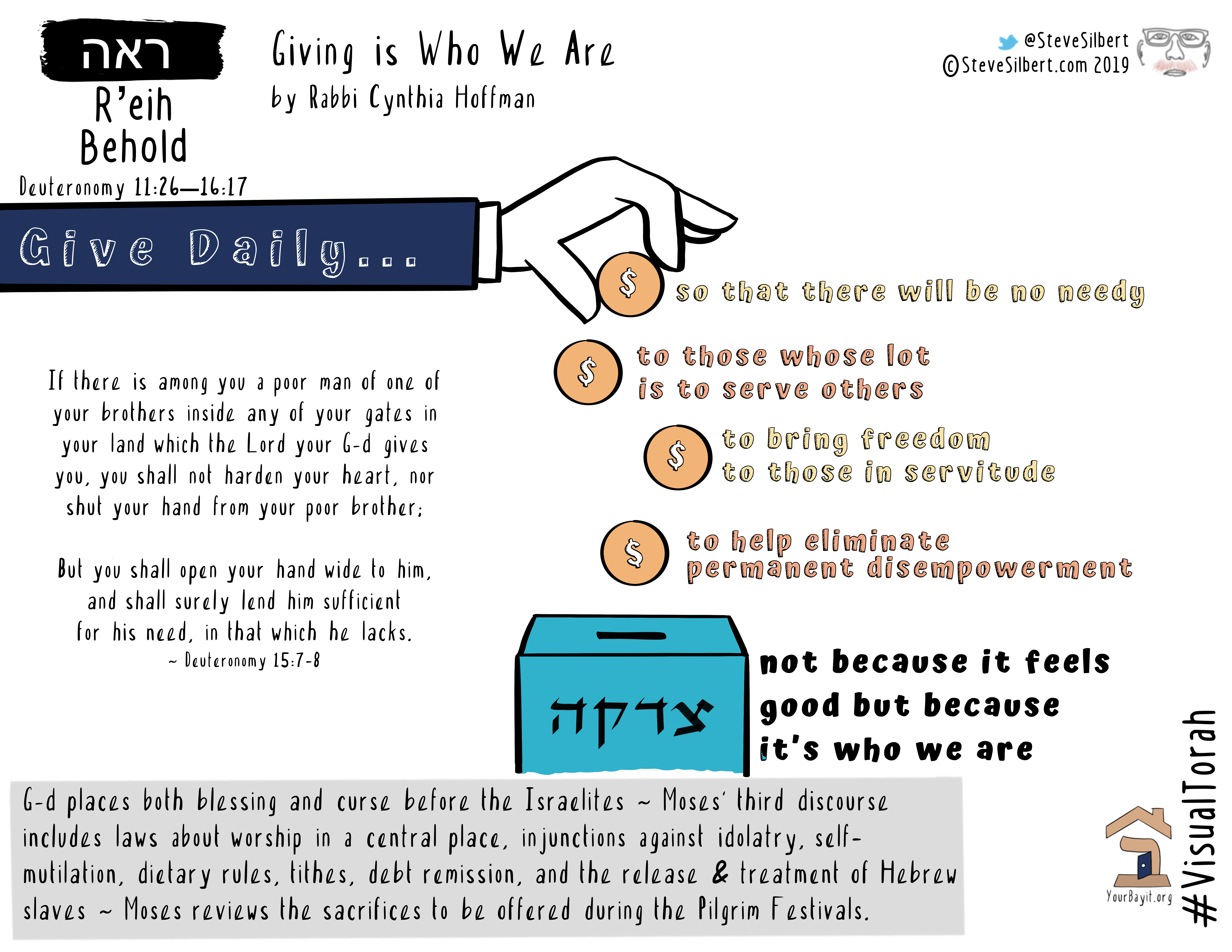
Part of a yearlong Torah series about building and builders in Jewish spiritual life.
When I was a kid, I loved watching my grandmother. After each visit to the doctor, when she got good news, she’d put a dollar in the pushkah (tzedakah box). Her joy in that ritual was contagious. I felt so good watching her do it. When the pushkah was filled, she’d donate the money. To this day, I try to continue that practice.
In a child’s eyes, it was easier to share, to see the abundance in the world and not the lack. I had an easier time seeing the blessings the world had to offer, even if it didn’t always seem fair how those blessings were distributed. It felt simple to give as a nearly automatic response arising from gratitude. My grandparents shared with me a culture of giving and showing up for others. It’s what we did because it’s who we were.
Parashat Re’eh teaches the same thing. We must build a society based on giving. Giving must be what we do, because it’s who we’re meant to be.
If we really listen and pay attention (Deut. 11:13), hopefully we’ll love God – but Re’eh seems to care as much for what we do as how we feel. Re’eh teaches that if we really listen and pay attention, we’ll emphasize care for others in the way we build our world.
We’d tithe, so that “there will be no needy” (Deut. 15:4). We’d give naturally to those “who have no hereditary portion” (Deut. 14:27). We’d give to the orphan, the widow and the stranger.
We’d honor the flow of nature, the seven-year cycle of the land (shmita).
We’d work actively to empower others. We’d release debts in the seventh year, so nobody would become a permanent debtor or underclass (Deut. 15:1-2).
We’d honor the fundamental dignity of people. Even in ancient days of bonded servitude, our ancestors freed servants after six years (Deut. 15:12). But freedom didn’t mean being let go empty handed and destitute (Deut. 15:13) — as the Union did with the Confederacy’s former slaves — but to make their leave-taking constructively possible by helping them learn to be self-sufficient and avoid enslavement to others out of lack of holdings and knowledge (Deut. 15:14-15).
Imagine if we treated people that way today. Imagine building a world that emphasized helping others be self-sufficient and avoid subjugation from lack of wealth or knowledge. Imagine the impacts for social policy – for migrant workers, prisoners, asylum seekers, people in recovery and more.
Why build that world? It’s not enough that we do it because we’re told to; merely being told isn’t working. Perhaps obedience had more staying power back then. Commandedness simply doesn’t hold much sway in the modern world.
A second approach also worked better then than now. Shai Held taught in The Heart of Torah that our ancestors believed that they’d deserve God’s blessing only by alleviating the suffering of others: only a society truly committed to erasing poverty was worthy of God’s blessing. That might well be true, but what a society deserves doesn’t make headlines.
To fulfill the social vision of Re’eh, we need to confront the question that has confounded history. What can arouse us collectively to give generously to others? How can we build a community whose foundation is giving when commandedness and self-worth aren’t effective answers?
Enter neuroscience and the positive psychology of game theory.
One reason for our world of instant gratification is that social structures, things and priorities all get us hooked on dopamine hits. The rush of winning a video game (or something similar) is a potent life drug. If you’re thinking “that’s not me”, consider the buzz of your phone, the ping of an online sale and the tiny “congrats” of your digital step counter. If you’re reading this, odds are good that you’re hooked.
What if we could make giving feel as good as winning the lottery? That’s Sam Feinsmith’s question. He asks, “Have you ever had the experience where giving something away created a deeper sense of fullness or abundance in you?”
Science and history both teach that if we want to build a community in which giving is what we do because it’s who we are, we must change our insides. We must focus on the little dopamine hits of genuine altruism until the hits become our way of life, what we do, and thus who we are.
If we’re lucky enough to live with a grandmother who teaches us by example to put a dollar in the pushkah, our insides learn by holy mimicry – from the outside in. And even if we once lived with such a person, for most of us those living examples are long gone.
But we can harness those dopamine hits and make new examples to follow. We can recreate in ourselves the routine that it feels good to give to others. If an app can ding when we buy, win, get an email or take our steps, then why not also when we give?
In ancient days, building Jewish community meant first having certain mandatory communal services – starting with a mikveh, a synagogue, a butcher (in the pre-vegan days) and the like. It’s core Judaism that a community isn’t Jewish without certain basics. One of those community basics now isn’t necessarily brick and mortar: it’s building a culture of giving.
Surround yourselves with people who give. Let them teach you by example. Get little dopamine hits from random acts of kindness, and sustained acts of giving. Build tiny reminders into your life. Put them everywhere. (And if you happen to be a bored software developer, let’s talk about building a Jewish giving app.)
Let many tiny acts of giving become what you do. It’s who we’re meant to be. That’s how we’ll build the community Re’eh envisions. That’s how we’ll build a community that truly loves God.
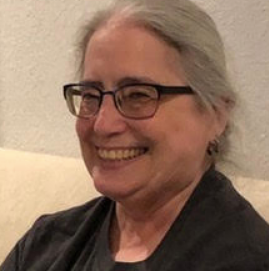

By Rabbi Cynthia Hoffman. Sketchnote by Steve Silbert.

